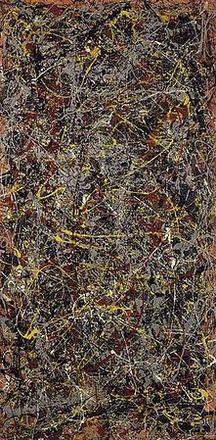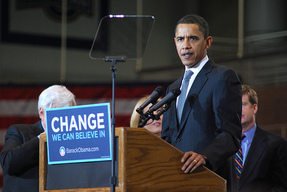| I have three things to say about Jackson Pollack, the mad king of abstract expressionism and drip-meister supreme whose birthday it is today. And I didn’t say any of them. An architecture professor of mine once said: “It isn’t what the splashes on the canvas look like. It’s how he splashed them.” A book I read once said: "Before Jackson Pollack was a painter, he had a job for the New York City Parks department cleaning bird droppings off of statues." Jackson Pollack himself said: "When I am in my painting, I’m not aware of what I’m doing. It is only after a sort of ‘get acquainted’ period that I see what I have been about. I have no fear of making changes, destroying the image, etc., because the painting has a life of its own. I try to let it come through." I have nothing to add. |


 RSS Feed
RSS Feed